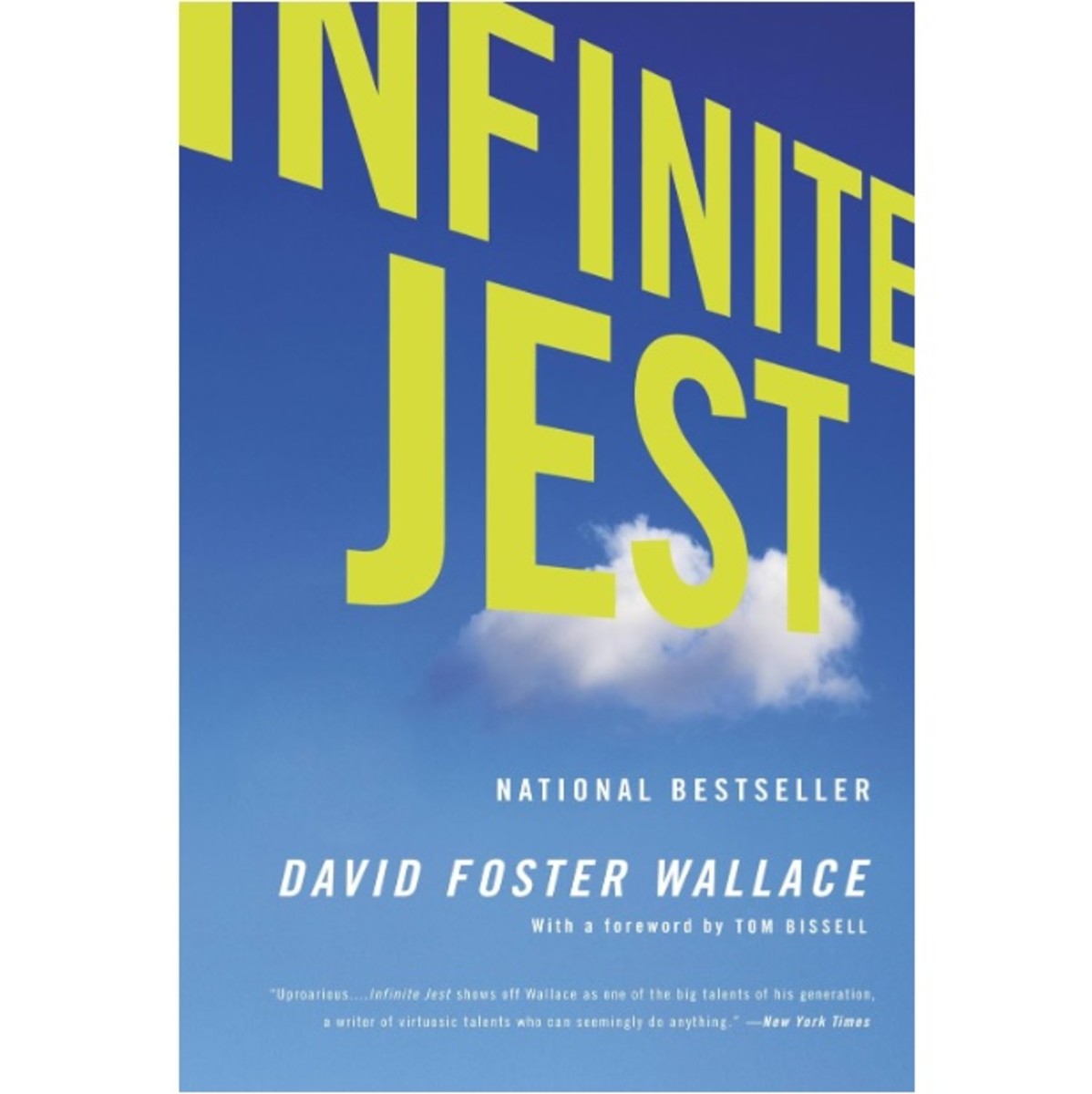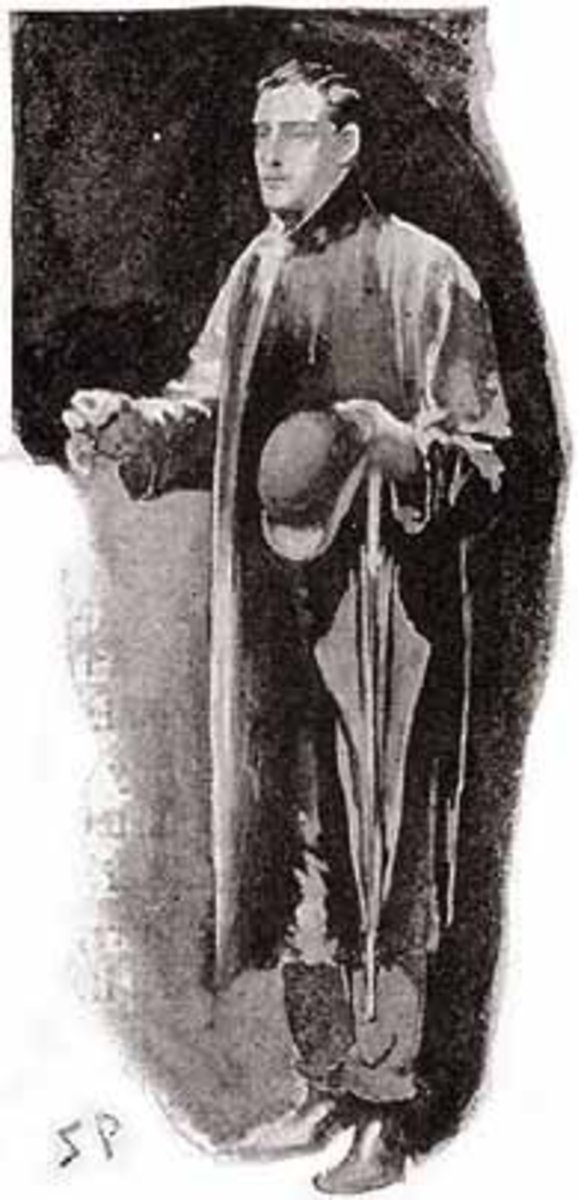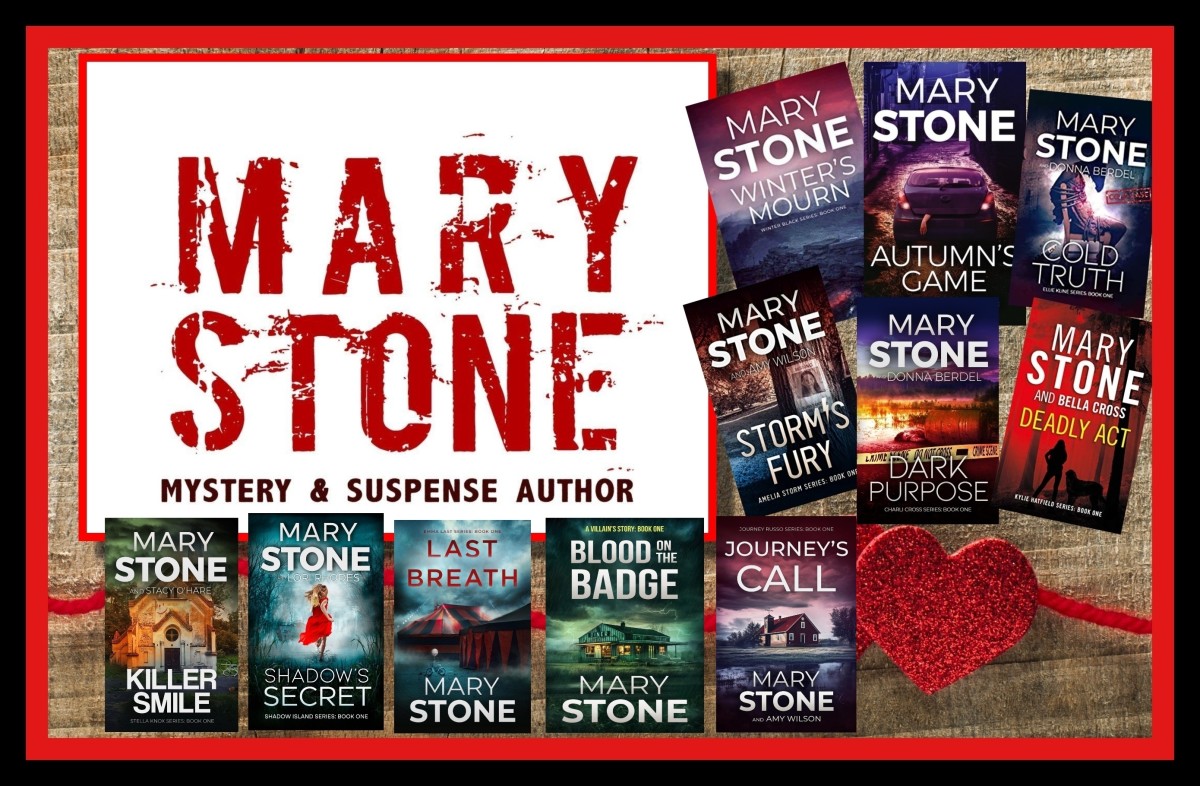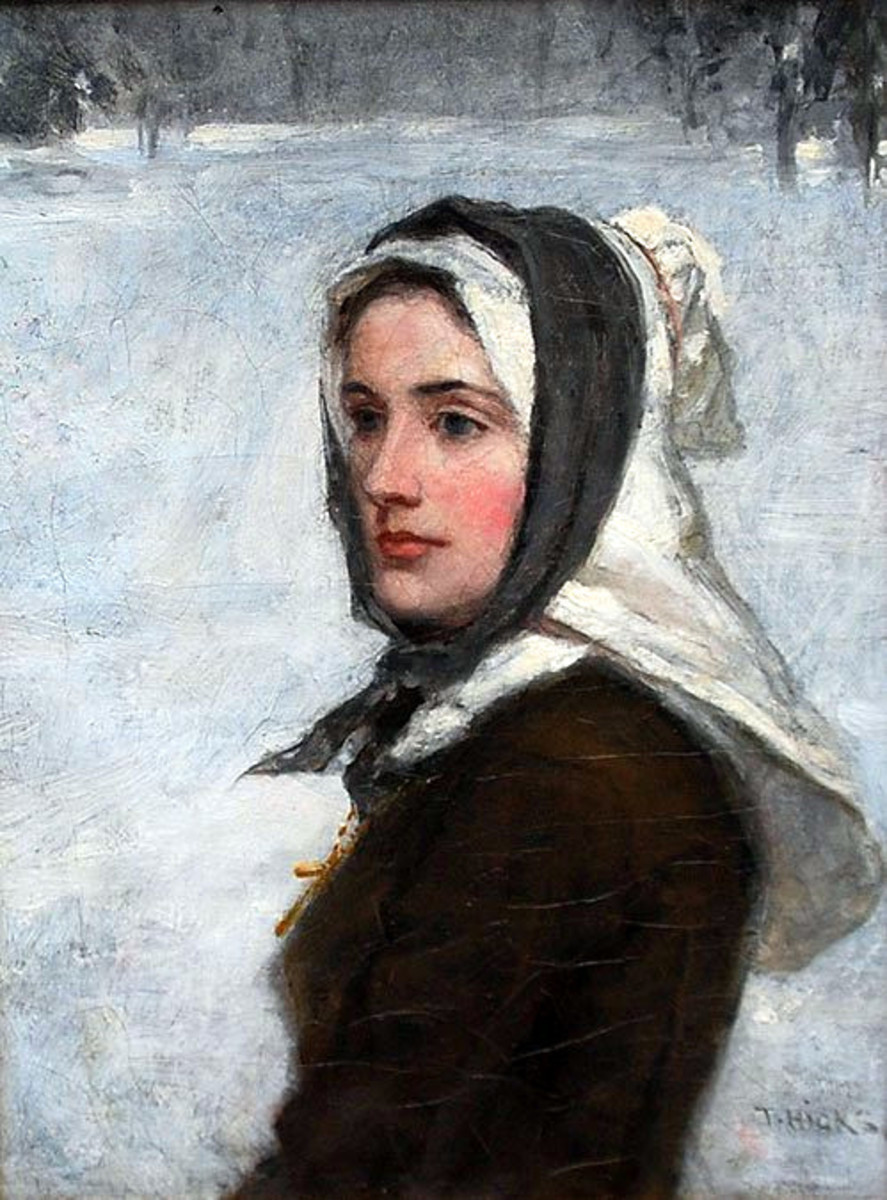How to write fiction from real-life incidents
Look at your own life for incidents
I just read a truly good article on the topic of writing from real life by Lorie Ann Grover, who has written several fiction books based on real incidents in her life. Her fantasy novel, Firstborn, received a Kirkus Starred Review, and a children's book, Bedtime Kiss for Little Fish, was named a Parents Magazine Best Children's Book. I have not read any of her books yet, but I was impressed by her article. I want to pass her great ideas on to you, but of course there is no way I can write a review without a little bit from the Peanut Gallery (me).
Ms. Grover advises starting out with the truth, but then she delves into the possible complications of writing fiction from real-time incidents. I believe a writer could avoid this problem by putting it into a different era and, of course, making sure the names do not resemble the names of the real live people involved in the incidents -- or of the deceased if they were a person well-known in the locale. While the dead cannot sue, a living relative can cause a problem if you have somehow inadvertently published something that reflects on them.
Thinking about using real-life incidents reminded me of a novel that I started writing about 10 years ago and have yet to finish. My great-grandfather had a female cousin who was quite a heroine during the Civil War. I wanted to write her biography, but all I could find was a one-paragraph inclusion in the Turnbo Manuscripts written by Ozark historian Silas C. Turnbo, whose writings are now considered the best record and folklore of the Ozark Mountains. I hit a wall because everything else I could dig up on her was genealogical, no family tales, nothing, nada. Just a photograph of one of the homeliest women I've ever seen.
My solution was to start making things up, so the first thing I did was to change all the names, including the family name. I had to fictionalize her but what could I say? Questions started flowing through my mind. Why did she have to be the town’s hero? She had brothers. The answer was obvious, they were off fighting in the war, her mom was no spring chicken, and her other siblings were too young. Turnbo says that she was extremely short at only 4 ft. 10 in. She was definitely no Scarlett O’Hara, I had to decide whether to make her into the lithe beauty of romance novels or tell the truth.
Truth is stranger than fiction
This comes to her second suggestion. Ms. Grover says that facts can feel fake. She muses that some believe-it-or-not facts can sound more like fiction than fiction itself, but I decided to keep her real as part of her character. I portrayed her as a petite person, not specifying her actual height, and I stated that she had not inherited her mother's looks. Then I started to develop her childhood by using incidents from my own childhood.
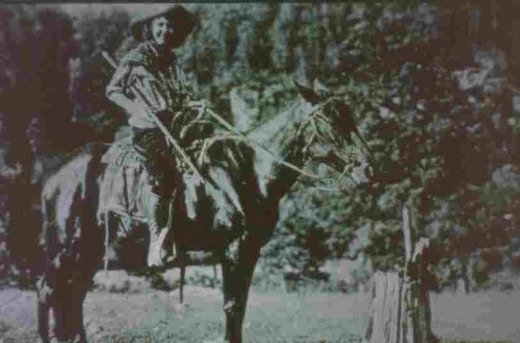
Get any permissions needed
Ms. Grover advised getting permission from people you are including, but long-forgotten incidents probably do not require permission. I wasn’t going to worry about it. My advice is to get any permission you need in writing. Don't rely on verbal agreements because honor went out with the World's Greatest Generation. A handshake and a word is no longer a person's bond.
The beautiful White River
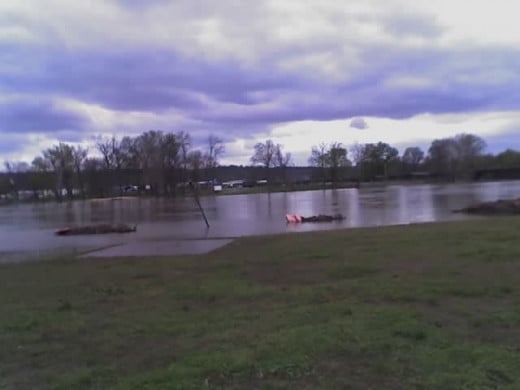
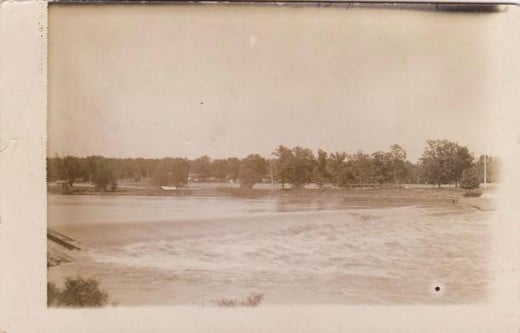
Let the story tell itself
Ms. Grover advised, let go and let the story run. I grew up on the same river as my ancestor, and people drowned in that beautiful, but treacherous, river. I rewrote the loss of a beloved teacher who drowned just before her wedding day, adding enough fiction to make it mine. Then I escalated it into the suicide of her fiancé who did not want to face life after losing her.
There were other negative incidents in my life like fistfights and bullying, so I included some of those. I remember a fistfight I had with a really mean boy in my neighborhood. He was more of a banty rooster than a real fighter, so we ended in a draw. I developed that into a fight that left a serious injury to my character and caused consequences in her later life. Sorry, Alfred, but you ended up in prison and are still there, so I’m not going to worry about a defamation of character lawsuit.
Look at the whole piece
Most of my character’s life is happy, but making a living in the mountains is hard and life can be very harsh, especially when two opposing armies are in the way. I wrote of happy times and the bad, of love and war, because that is what in my mind built the character of this woman. But then Ms. Grover says to take pause and look at the work as a whole. I did, and I realized that I had a book full of incidents; I didn’t have a much of a hook, if one at all. I had a narrative of the life of a courageous woman of the mid-to-late 19th Century, which would be acceptable for a straight biography of an unusual or famous person but not in today’s fiction. I still don’t have an exciting hook, and I’m still thinking. Bleh!
Promote and share
The author’s final hint is to share the works completion with everyone you know, including websites like Facebook, Twitter, etc. I’ve done a fairly decent job of following her first five hints on my own. When I get that book finished, of course I will crow like the 4 a.m. rooster.
Why would I use my unfinished book as an example of the hints laid out in someone else’s tutorial? When I saw her hints, I saw that I had followed them almost to the letter. It reinforced the thought in my mind that I have good instincts, and I wanted to share them as a checklist for others. But, admittedly, I still have not completed the book, and the proof of the pudding is in the eating. So they say.
Back to my excuses
Another reason I haven’t finished this book is because of the physical research that I just don’t have time to take off work and do. I grew up in the Ozarks 30 miles from where my character lived. I can sit at a computer and do all the research I need to do on the Civil War and on other facts from making soap to dodging bullets. However, I know the beauty of these mountains and their treachery, and I need specific places like hills, bluffs, valleys, and streams. I want my descriptions to be beyond criticism. Never let it be said that I didn’t know my own native terrain, “That cave was set in a holler about three miles from Calico Rock, not on the hillside a short run from Sylamore.”
I simply can’t desecrate my beloved Ozarks with imaginary fictionalization. Rather than do a botched-up job just to get something finished, I would rather put it aside and wait until I can make a leisurely trip to research her home territory and finish it. This is a matter of pride, not laziness.
However, I have taken Lorie Ann Grover's advice to heart and will use it in the completion of my book. I hope that her bit of advice is helpful to you, too.
Why I wrote this article
I just read a column in the newspaper by my old editorial management page professor, Paul Greenberg, who is the managing editor of our statewide daily newspaper. Mr. Greenberg, a Pulitzer Prize winner, was recently accused of plagiarism in an article by another columnist. I did not see the original article, but apparently some of his other enemies took up the cudgel against him.
He defended his stance on writing by basically saying that almost all research amounts to plagiarism. He says that unless you discover it or invent it yourself, you are plagiarizing someone else’s research. His advice is to use the work but give them the credit where credit is due. He uses a lot of quotes in his columns, in fact, I'm not sure I've ever seen a column without a quote from someone he admired, but he gives them credit.
In case you are wondering why I would bring up Mr. Greenberg in an article on Lorie Ann Glover, I guess I’m quoting him in my defense of using Ms. Glover's work. My defense is that I admire her and want to share her good ideas.



